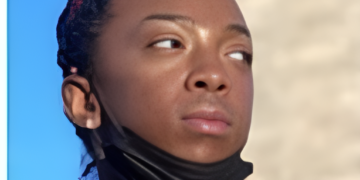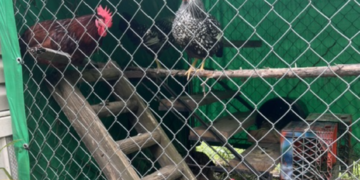With the new Omicron variant, COVID-19 cases are at astronomically high levels. Chancellor Glenn Boyce announced on Jan. 10 the COVID-19 protocols for the upcoming semester and how the university will combat the rising cases.
“The Omicron variant is now the dominant strain of the virus. While health officials indicate Omicron cases are generally mild (especially for those who are vaccinated), the transmissibility of Omicron is significantly higher than the Delta variant,” Boyce said.

On Jan. 12, the Mississippi State Department of Health reported 9,300 COVID-19 cases and 19 deaths. Nationally, as of Jan. 14, the seven day case average measures 782,766, according to the Centers for Disease Control and Prevention.
Classes and other functions likely will face disruptions due to the increase of transmissibility, Boyce said.
All classes will remain in-person with a continuation of the public mask mandate in all indoor facilities. Boyce also encourages all meetings to be held virtually, when possible.
Boyce also instructed students, faculty and staff who test positive for or experience symptoms of COVID-19 to stay home, notify their supervisors/instructors, report their positive test to University Health Services and observe CDC isolation and quarantine guidelines.
The recently updated CDC guidelines state that if a person is exposed to COVID-19 and has not received up-to-date vaccinations — two shots with a booster — they must quarantine for five days. In comparison, if a person up-to-date with their vaccinations is exposed to COVID-19, as long as they do not present symptoms, they are not required to quarantine. All who test positive, regardless of vaccination status, should isolate for at least five days.
Other Mississippi public universities have taken extra measures in response to the record high COVID-19 cases in the state. Jackson State University announced that all in-person classes will be held online from Jan. 10 to Jan. 24. In addition, Mississippi Valley State University announced that classes would begin on Jan. 10, but will remain virtual throughout the first week of classes and change in-person on Jan. 18.
Alcorn State University, Delta State University, Mississippi State University, Mississippi University for Women and the University of Southern Mississippi follow the same protocols as the University of Mississippi.
UM students and faculty have conflicted opinions and many questions on the protocols.
Lauren Flood, a sophomore biomedical science and English major, said she is excited for the upcoming semester, but apprehensive about the COVID-19 rates.
“I’m looking forward to taking new classes and finding new things to involve myself in, but I’m a bit worried about how limited my scope of activity will be because of Omicron,” Flood said. “Personally, I think the mask mandate is a good decision for events on campus, but there’s only so much the university can do to prevent the spread of COVID-19. Ultimately, the spread of the new variant will depend on the student response.”
Fara Shook, a writing and rhetoric professor at the university, said that she is a proponent of vaccinations. She recalled the 1992 measles outbreak where students and faculty were required to present their vaccination records.
“Everybody had to get vaccinated, instructors checked it off and it was no big deal. So I’m surprised and disappointed that the university has not done what we did in ’92,” Shook said.
Shook and other professors have said that the protocols are not clearly defined when it comes to whether the university will follow Jackson State or Mississippi Valley State on starting virtual. Because of this, Shook has created multiple syllabi in case the university’s guidelines change.
“I think a lot of instructors aren’t just making one syllabus, but that they have a backup in case there becomes a different situation,” Shook said.
The Institutions of Higher Learning Director of Communications requires no vaccine mandate for students, according to spokesperson Caron Blanton.
“The federal executive orders requiring COVID-19 vaccine mandates for public university employees under various circumstances are being litigated,” Blanton said.
Previously, an executive order resulted in IHL mandating the COVID-19 vaccines for all faculty, staff and student workers. However, the executive order has since been stayed and the mandate has been suspended.
Although the board cannot mandate vaccines, they strongly encourage members of all Mississippi campuses to get vaccinated to help reduce the spread of COVID-19. The board expects there to be a rise of positive COVID-19 tests at the start of the semester, with a sharp decline as the semester continues. Universities also cannot mandate vaccinations, but can highly incentivize them.
In the City of Oxford, there are currently no mask mandates issued for indoor facilities.

























